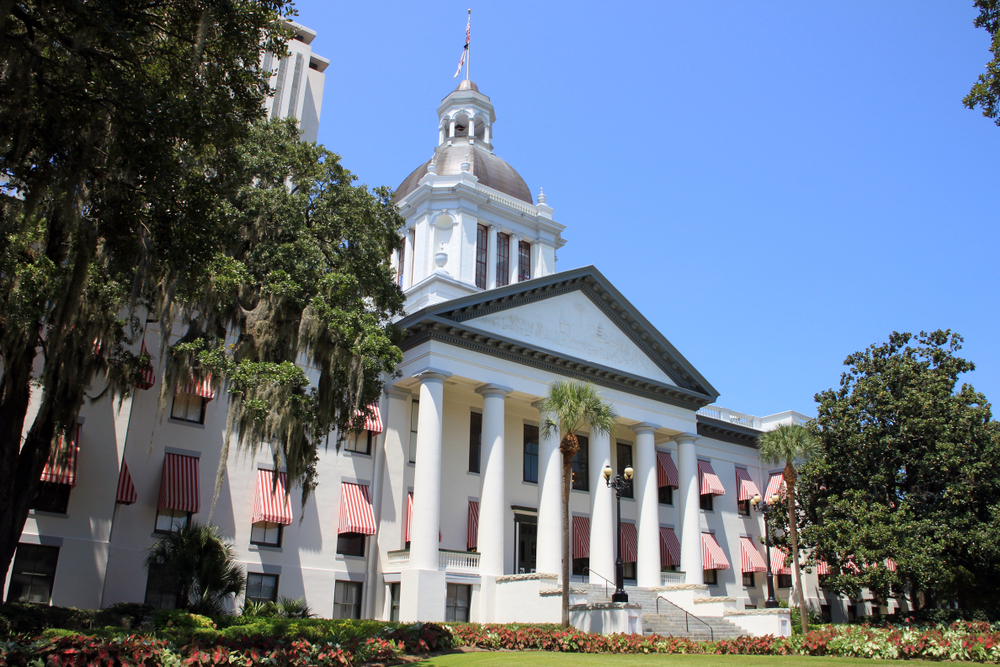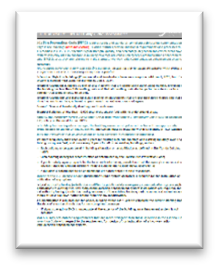Florida Enacts Bill Revising the State’s ERCES Rules

Posted on July 27, 2023
SBC Leadership re-shaped parts of the bill, averting a drastic downgrade in enforcement
On June 26th, Florida Governor DeSantis signed Florida HB 1575 (2023), once again updating Florida rules governing ERCES in the state.
This marks three consecutive years where the Florida legislature considered revisions to ERCES enforcement rules. The bill drafts have been initiated by various proponents from the property development and builders sector. Each year, the proponents have sought to curb enforcement of ERCES rules, and the Safer Buildings Coalition, in collaboration with other industry groups and key SBC members, have pushed back to limit these efforts, and in some cases to even improve the rules on the books.
SBC Issues Revised Code Bulletin for Florida ERCES Requirements

You can download the updated SBC Code Bulletin here:
CLICK TO DOWNLOAD CODE BULLETIN
SBC Code Bulletins are useful for disseminating to your partners, customers, and building owners with an interest in such projects in Florida. All are free to download and share the document (unaltered). SBC Members can obtain a soft copy suitable for branding (with attribution).
[LINK TO DOWNLOAD PAGE] (Must be a member and logged in to view)
Key Elements of the Current Florida ERCES Requirements (as of July 1, 2023)
OVERVIEW: Florida Fire Prevention Code (FFPC) requires codes and standards-compliant public safety communication coverage inside buildings (new and existing). Florida Statutes provide additional requirements and processes to what is codified in FFPC. FFPC specifies signal strength, quality, and percentage of general and critical areas covered. The systems typically used to enhance in-building coverage are called Emergency Communication Enhancement Systems (ERCES), or as they are referred to in the statutes, two-way radio communication enhancement system.
KEY ELEMENTS:
- FFPC requires coverage in new and existing buildings, except for the following exceptions which either have no requirement or where temporary exemption is granted:
- Extension: High Rise buildings (Commercial and Residential) have an exemption until Jan 1, 2025, but if a system is needed must apply for permits by Jan 1, 2024.
- Exempt: Apartment buildings 75 feet or less in height that are constructed using wood framing, provided that the building has less than 150 dwelling units and that all dwelling units discharge to the exterior or to a corridor that leads directly to an exit.
- Exempt: Apartments and transient public lodging establishments that are less than three stories and that have direct access from the apartment or guest area to an exterior means of egress.
- Exempt: One- and two-family dwellings and townhouses.
- Exempt: Buildings of less than 12,000 total gross square feet with no underground areas.
- Prohibits the Authority Having Jurisdiction (AHJ) from withholding a Temporary Certificate of Occupancy (TCO) solely on the need for an ERCES.
- If a building has inadequate coverage, the building owner must get a contractor with an appropriate Florida license to submit an ERCES design, and system must be installed within 12-months of TCO issuance.
- Limits the frequency that an assessment of radio coverage is required for buildings:
- Not more frequently than once every 3 years for existing high-rise buildings and existing buildings over 12,000 total gross square feet, and once every 5 years for all other existing buildings, unless:
- Such building undergoes Level III building alteration or rehabilitation as defined in the Florida Building Code;
- Such building undergoes reconstruction as determined by the Florida Fire Prevention Code;
- A public safety agency reports to the local authority having jurisdiction that the agency's communication devices failed to function correctly inside a building due to poor signal coverage; or
- A building is determined to be an imminent life safety threat to first responders.
- Consent of the FCC license holder (jurisdiction’s radio system operator) is required for the installation or modification of any system.
- If a local authority having jurisdiction modifies its public safety emergency communication system such that modifications to existing two-way radio communication enhancement system installations are required, the local authority having jurisdiction must give owners of the existing two-way radio communication enhancement systems at least 180 days' notice before requiring any modification.
- If a modification is required per the above, building owner has 1 year to complete the retrofit starting from the date of a notice of violation for non-compliant coverage.
- If signal strength or DAQ is inadequate at the exterior of the building, an enhancement system is not required
And, perhaps the most impactful change to the statute:
- Local AHJ may not enforce requirements that are more stringent than those specified in the Florida Fire Prevention Code with respect to the requirement for, design of, or installation of a two-way radio communication enhancement systems.
Let the implications of that clause sink in for a moment! It will be interesting to see who tests this first.
Time is Running Out on Florida High-Rise ERCES Exemption
While existing high-rise (buildings greater than 75 feet) commercial and residential buildings have an enforcement extension to January 1, 2025, existing high-rise buildings lacking compliant coverage must have their permits in place by January 1, 2024 – less than 6 months away.
This means it would be advisable for existing high-rise properties to obtain a coverage assessment now to determine if their building is in need of coverage enhancement. Note: New buildings are not exempt under the statute.
Building owners desiring an assessment for their existing building can find qualified test vendors among the System Integrators listed in the SBC Member Showcase
CLICK HERE TO VIEW THE SHOWCASE
SBC Revisions Accepted and Incorporated into the Final Bill: "You need us on that wall"
The first version of the bill, filed March 6th by the honorable Robbie Brackett (R) 34th District, initially read (in part) as follows:
“If an assessment of a new building's interior radio coverage and signal strength determines that installation of a two-way radio communications enhancement system is required, the local authority having jurisdiction may not withhold the issuance of a certificate of occupancy for the building if the registered architect or professional engineer who designed the building determines, in his or her professional judgment, that a two-way radio communications enhancement system is not necessary in order for the building to meet the minimum standards for interior radio coverage and signal strength.”
A late-night writing session in a hotel room in Las Vegas during the IWCE conference yielded the following language, which was incorporated into the final bill:
“If an assessment of a new building's interior radio coverage and signal strength under the Florida Fire Prevention Code determines that installation of a two-way radio communication enhancement system is required, a contractor having the appropriate license issued by the department must submit a design to the local authority having jurisdiction for a two-way radio communication enhancement system to correct noncompliant radio coverage. The local authority having jurisdiction may not withhold issuance of a temporary certificate of occupancy for the building based solely on the need for a two-way radio communication enhancement system. Upon approval of the design by the local authority having jurisdiction, the jurisdiction must require the installation of the two-way radio communication enhancement system within 12 months after the issuance of a temporary certificate of occupancy.”
It Takes a Village
Without the decisive action of SBC leadership and a coalition of the willing, a very drastic change would have occurred in the Florida ERCES sector.
SBC would like to acknowledge the support of a coalition comprising SBC, FL-AFAA, SBC members Honeywell and Siemens, and others, who met to discuss and strategize our lobbying efforts in 2023, and who pooled funds with us to retain a lobbyist to assist us with our shuttle diplomacy in Tallahassee.
SBC also acknowledges collaboration and support from the Florida Fire Marshals and Inspectors Association (FFMIA) and the Florida Fire Chiefs.
Join a Work Group – Let Us Know What’s Up in Your State
SBC must be ever-vigilant in keeping up with changes to ERCES rules in all states, and you can help. Use our contact form to let us know about local changes [CONTACT FORM LINK]
You can join a work group to help us continually evolve codes standards, and policies.
Available Work Groups:
If you would like to join a Work Group, Click the Appropriate link to let us know!
|